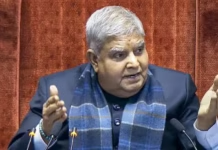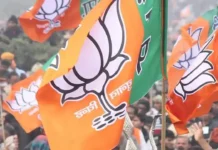
Tensions between India and Pakistan have once again come into focus, raising concerns about peace in the region. In this situation, former Jammu and Kashmir Chief Minister Mehbooba Mufti has made a strong public appeal. She urged both nations to exercise restraint, avoid provocation, and choose dialogue over confrontation. Her statement reflects the need for calm and peace, especially as border communities in Jammu and Kashmir continue to suffer during such periods of conflict.
Mehbooba Mufti, the leader of the People’s Democratic Party (PDP), has always been vocal about the importance of peace and stability in Kashmir. Her latest comments come as ceasefire violations and hostile statements create fear across the region. She reminded both nations that it is the common people who suffer the most, particularly those living near the Line of Control (LoC).
Who is Mehbooba Mufti?
Mehbooba Mufti is a well-known political figure in Jammu and Kashmir. She made history as the first woman Chief Minister of the former state and remains a central figure in the region’s politics. Known for her support of peaceful solutions, Mehbooba has always stood for dialogue between India and Pakistan. After the abrogation of Article 370 in 2019, she was placed under house arrest for more than a year under the Public Safety Act (PSA). Since her release, she has continued to speak on the need for peace, restoration of special status, and protection of human rights.
What Did She Say?
In her recent appeal, Mehbooba Mufti said,
“It is the people of Jammu and Kashmir who suffer the most when India and Pakistan enter a phase of confrontation. I appeal to both countries to avoid war rhetoric and come to the table for meaningful dialogue.“
She urged both governments to avoid military action, respect the 2021 ceasefire agreement, and focus on talks and mutual understanding. According to her, violence never solves problems. Only through communication and diplomacy can peace be achieved.
Why Is Her Statement Important Now?
Her appeal comes at a critical time. Reports of cross-border firing along the LoC have increased. Both India and Pakistan have exchanged strong words, raising fears of escalation. Though the ceasefire agreement of 2021 brought hope, recent events have shaken the fragile peace.
Mehbooba’s words serve as a reminder that the safety of civilians must come first. She stressed that violence leads to destruction, while dialogue creates opportunities for growth and peace. Her appeal is not just a political message, but also a humanitarian call to save lives and protect communities.
Border Communities in Distress
The Line of Control remains one of the most dangerous places for civilians. Villagers living near the LoC regularly face the fear of shelling, displacement, and casualties. Schools are shut down, farmlands are abandoned, and families live in constant fear.
Mehbooba Mufti strongly criticized this ongoing situation. She said,
“The children of border villagers deserve schools, not bunkers. Farmers deserve to sow seeds, not fear.“
Her words underline the pain of thousands of innocent people who are caught in the crossfire between two powerful nations.
A History of Supporting Peace
This is not the first time Mehbooba Mufti has spoken out in favor of peace. During her time as Chief Minister, she took several initiatives to build bridges between India and Pakistan. Some of the most notable efforts included the Srinagar-Muzaffarabad bus service, cross-border trade, and pushing for confidence-building measures (CBMs).
She firmly believes that Kashmir should become a symbol of peace, not a battlefield. She has always promoted dialogue, even when political opinion was against her. Her consistent message has been that diplomacy must win over aggression.
Impact on Jammu and Kashmir’s People
Every time conflict rises, it is Kashmiris who suffer the most. The constant uncertainty affects education, tourism, employment, and mental health. Youth in Jammu and Kashmir are already facing limited job opportunities. A worsening situation pushes them further into frustration and hopelessness.
Mehbooba addressed this by saying,
“Give the youth books, not bullets. Invest in their future, not their fears.“
This statement reflects the need to build a peaceful and progressive society, especially for the younger generation, who are the future of the region.
Reactions to Her Appeal
Her appeal has received mixed responses. Many political observers, peace activists, and common citizens have praised her for taking a stand for peace. In contrast, some of her political rivals accused her of being too sympathetic toward Pakistan.
Despite criticism, her message found strong support on social media, especially among Kashmiris. Hashtags like #DialogueNotWar, #KashmirWantsPeace, and #MehboobaMufti trended for days. Her party, the PDP, defended her, saying that she is promoting realism and humanity, not weakness.
Global Relevance of India-Pakistan Peace
The tension between India and Pakistan is not just a local issue—it is a matter of global security. Both countries are nuclear powers, and even a small conflict could result in devastating consequences.
International organizations like the United Nations, Amnesty International, and Human Rights Watch have urged both sides to respect human rights and maintain peace, especially in Kashmir. Mehbooba Mufti’s appeal aligns with this international concern. Her voice strengthens the global call for stability in South Asia.
Need for Dialogue
The most important point of Mehbooba Mufti’s message is her call for dialogue. She believes that both governments must return to the negotiating table. History has shown that meaningful dialogue can create progress. For example, the Lahore Declaration of 1999, the Agra Summit of 2001, and the composite dialogue process all brought temporary improvements.
She urged today’s leaders to take inspiration from past efforts and create a long-term roadmap for peace and cooperation.
Mehbooba Mufti’s appeal is a bold and timely call for peace between India and Pakistan. At a time when hostility is rising, she reminds us that the path of violence only brings loss, while peace brings hope.Her message is clear: protect people, promote dialogue, and build a better future. If taken seriously, her suggestions could save lives, reduce tensions, and help make South Asia a safer region for all


































